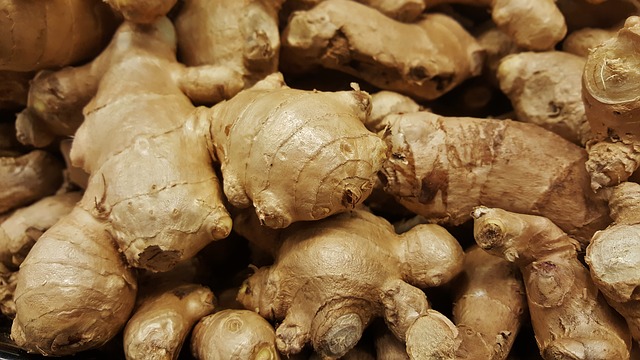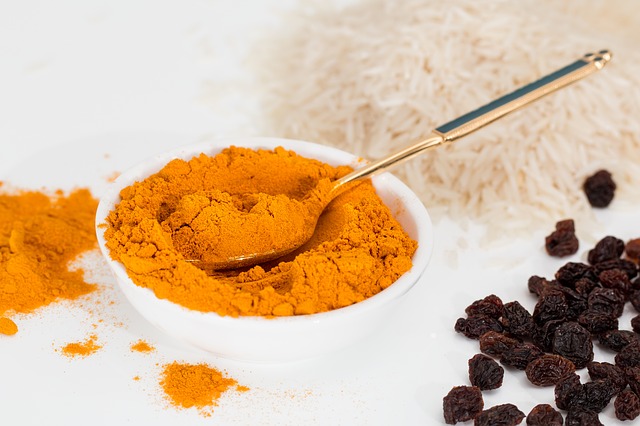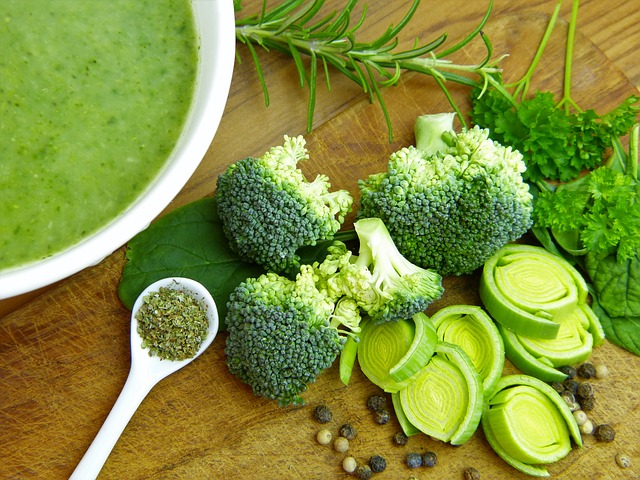Gas, bloating, abdominal pain, constipation or diarrhea – we’ve all suffered from gastrointestinal distress brought on by poor diet habits and high-stress lives.
The damage we do to our guts can have long-term consequences for our health, including autoimmune diseases, higher risk of cancer, and even depression. The Digestive Center suggests introducing these five healthy herbs and foods into your routine to not only relieve the symptoms of a damaged gut but also help your gut heal itself.
As with any change in your health routine, you should talk with your doctor about allergies, food sensitivities, or any medications you are taking before introducing new herbs and foods.
1. Chamomile

Chamomile tea is best known for its soothing effects on stressed-out nerves, but it has also been used for thousands of years in traditional medicine to treat digestive problems due to its antispasmodic, anti-inflammatory, and carminative (i.e., flatulence relieving) properties. A growing number of research studies have found that chamomile tea not only promotes healthy digestion but also helps in treating such conditions as ulcerative colitis, irritable bowel syndrome, indigestion, and other gastrointestinal disorders.
People with allergies to ragweed, chrysanthemums, marigolds, daisies, or similar plants may have an allergic reaction to chamomile. Some medicines, including warfarin, interact with chamomile, so it is important to check with your doctor before adding chamomile to your gut-health routine.
2. Ginger

Anyone who has suffered through motion sickness or morning sickness can attest to the power of ginger to settle a queasy stomach. But it can do more for your gut than just combat nausea. A study published in the Journal of Food Science found that ginger can reduce gut inflammation, while other evidence suggests that ginger encourages more rapid emptying of the stomach, reducing the incidence of dyspepsia (or heartburn), and may protect against ulcers by preventing the growth of bad bacteria.
3. Turmeric

Turmeric’s powerful anti-inflammatory properties have made it a staple in Ayurvedic medicine for thousands of years. Among its many uses, turmeric can help relieve symptoms from dyspepsia, Crohn’s disease, ulcerative colitis, intestinal gas, bacterial infections, ulcers, IBS, and gallbladder and liver disorders.
Turmeric’s healing properties are largely due to anti-oxidants known as curcumins. In addition to reducing inflammation, curcumins may relax muscles in the digestive tract, boost the production of bile, and balance the gut’s microbiota. A study published in the American Journal of Physiology shows that curcumin not only prevents damage but also may encourage healing in those with leaky gut syndrome by regenerating glands on the inner surface of the colon.
4. Broccoli

A member of the cruciferous plant family, broccoli is high in fiber, an important component of a gut-healthy diet. In addition, studies of broccoli’s health effects have found that it can reduce inflammation in the colon and protect against colon cancer, among other cancers. New research has found that broccoli may even help repair leaky guts. A study in the Journal of Nutrition found that cruciferous plants have distinctive compounds that help maintain a healthy microbiota balance in the gut.
5. Sauerkraut

Made with cabbage, sauerkraut has all the gut-healthy properties of its cruciferous cousin, broccoli, but with the added benefits of fermentation. The process of fermentation creates live bacteria, known as probiotics, that encourage the growth of good bacteria in your gut while also fighting inflammation. Probiotics can help relieve gas, bloating, and constipation. Fermentation can also boost the nutritional value of foods, while compounds created in the process can help break down food during digestion.
